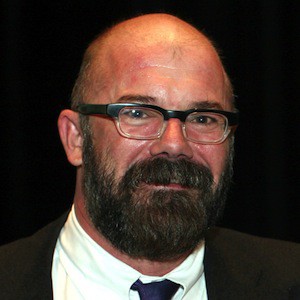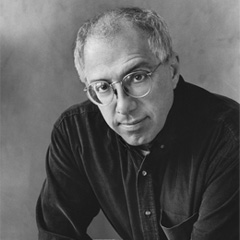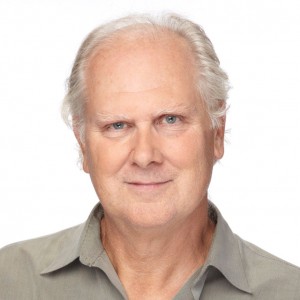Martin Nisenholtz: We’re rolling with Matt Mullenweg, in San Francisco. On, I want to say today is eight, the eighth of April, 2013, Martin Nisenholtz.
Matt: Hi.
Martin: Nice to see you after all this time.
Matt: It has been a few years, hasn’t it?
Martin: A couple years, at least a couple. You look the same.
Matt: [laughs]
Martin: That’s a good thing. Working…
Matt: Hair’s a little longer.
Martin: A little bit, maybe not. Beard’s a little shorter maybe. [laughs]
Matt: That’s true.
Martin: Anyway, let’s start, just because, how did you come to publishing? I mean, I know your history, for the sake of the interview, just talk about how you came to publishing, and why you decided to do what you did?
Matt: Sure, I probably found the first blogs I read were economics blogs. One of the early ones I remember was Brad DeLong. It was just in a subject area I was interested in, and folks were writing about it every single day. Like fairly esoteric things. There was no news website on macroeconomics, but there were some professors that would blog about, pretty much, daily. Tyleco, those were my first blogs, and then I discovered…
Martin: What year was that have been?
Matt: This probably would have been 2000.
Martin: OK.
Matt: Blogs were already a thing. Blogger started, David Winer had had all of his things, you should talk to him.
Martin: I’ve talked to him.
Matt: Then I discovered the cool blogs, Anil Dash, Kos, some of the guys who are still going today, Daring Fireball, and that made me feel like I could blog and so I started blogging. I used Movable Type. I’d done some CMSs for publishing news before, like organizations have their news, there’s a meeting next week, we’re going to have this speaker next month or something like that. But never personal blogging. That’s what brought me to publishing.
Martin: Mm hmm. Just to be clear, you were a freshman at that time.
Matt: This was still in high school.
Martin: OK. What brought you to WordPress? I mean, how did that happen?
Matt: Sure, so Movable Type, I wasn’t crazy about the software, so I switched to something called b2. b2 was open source. I started hacking on it, contributing some code, which was a great way to learn how to code, because I didn’t really know. b2 sort of was abandoned as an open source project. Myself and a fellow over in the UK, Mike Little, picked it up and continued it, and that became WordPress.
Martin: I see. OK. What year was that?
Matt: That would have been 2003.
Martin: OK, and then you landed at CNET?
Matt: Yeah. That was about two years later. I had come out to San Francisco to visit a friend, Tantek Celik, who worked on the Microsoft Internet Explorer team. But he was very well connected on the web. I had met a lot of these folks at SXSW, which at the time was much smaller. I feel like 5 or 600 people in the tech part, and so you could kind of meet everyone there. It was like, still like it is today, like San Francisco went to Austin. Being in Texas, I was amazed, all these Internet luminaries were going to be in my state.
I visit Tantek , and I spent a week here. It was a lot of fun. I went to Google, I met the Blogger team with Google, actually, because they had already been acquired at this point. I visited Yahoo, I visited a ton of different companies. One of them was CNET.
They had said, they just wanted me to come in and talk about RSS, which was a big thing at the time. I guess they were figuring out, and they were already using WordPress for Download.com, and a few other properties.
When I went back to Houston, they, a couple of those companies got in touch, saying, would you be interested in a job, and CNET was the most interesting.
Martin: Why?
Matt: Because they were a media company, not a technology company, and so from an intellectual property point of view, they weren’t trying… You work at a Google, you sign something that says everything I create while I’m here or at home or whatever belongs to you guys. CNET did a carve out that let me retain the IP personally to any open source code I did, which I thought was really cool, and they also carved out 15 percent of my time, I could just spend hacking on WordPress.
Martin: What were you doing for CNET?
Matt: It was kind of odd. I was in a strange group. I worked on Help.com and helped relaunch that. They had some educational stuff they ran through CNET.com and News.com. I just ended up doing some random…I was like a product manager, but I was also the only engineer on that team. So, I ended up coding and managing product and helping them out.
Martin: One of the things that has been a persistent theme for us is that media companies just don’t get engineering. Was that true at CNET? Did you find that you were alone there?
Matt: I did feel relatively alone, partially because of a technological point of view. There wasn’t that much going on. Most of CNET’s platform was a Java based thing. Obviously, CNET has a huge history in publishing. Vignette spun out of them in the early days. They’re really probably one of the first Internet publishers that scaled.
Martin: Yeah, they probably were the first Internet publishers. We haven’t talked to Halsey, but…
Matt: It would be good. Halsey or Shelby.
Martin: Yeah, Shelby.
Matt: They deeply understood it, which was fantastic. Shelby and there was this guy there Mike Tatum, who were the guys who brought me in, essentially. But, all that stuff was in Java, and I was PHP. The only thing that was PHP at the company was GameSpot, which was very different from, they called the “Red ball properties,” that I was in. News.com, CNET.com, Download.com. The had the red CNET ball logo.
It’s kind of weird how these things inside companies are demarcated. I was the only engineer, and then IT was a little bit of a pain. I wanted a Linux server that I could hack around on.
It was easier for me to actually order a second desktop and then configure it as a Linux server, under my desk, and then just point people to that IP address than it was to get something officially going with IT.
Of course, IT is notorious at many organizations.
Martin: At that point in history, as I recall, blogging is relatively new. It’s not brand new, but it’s relatively new, and there is a real distinction between publishing articles on the Web and publishing a blog on the Web. That era was… [doorbell]
Matt: I’m sorry. Can we pause for a sec?
Martin: Sure, we can. [door opening]
Martin: Om, how are you?
Om: I’m good, Martin.
Martin: That’s OK. How are you? Good to see you.
Matt: You want to help yourself to coffee or something?
Martin: Let’s just continue. Om Malik has just walked in the door and…
Matt: It’s a small world.
Martin: [laughs] It’s a small world, right. We’re going to do a little interview with him in a minute. These two things are quite separate. Did you view them as separate? Did you view them as two different worlds, the world of articles and the world of blogging? And if so, what was your thought about what the differences were?
Matt: I feel like blogging was in a teenage phase. There was a lot of crisis of self identity. I personally hated the word “blog.” I called it either a “weblog” or a “journal.” All my sites were called journals. Some folks were trying to define blogging as strong point of view, single author, comments were very, very important, by a lot of people. Yeah, I did see it as something different.
But then, very early on, you started to have these blogs, essentially group blogs, for something less popular, even from their early days, which looked a little bit more like a traditional media organization, more than a single author opinion.
Martin: Like Boing Boing.
Matt: Boing Boing was an early one that was very popular. One of the economics ones I followed, which was called “Marginal Revolution,” which is actually still going today. What else? That’s all I can think of, off the top of my head.
Martin: The world of blogging begins to develop now, and you leave CNET?
Matt: Yeah. I was at CNET for about a year. I was a big believer in personal publishing, and I wanted to do something where anyone could start a WordPress.com blog on CNET. They had all these cool online domains like online.com and computer.com. I figured we could use one of these like online.com and say let’s have martin.online.com and then everyone could have one. It could be your own sort of voice on the web.
Martin: Dave Winer came to the Times with the same idea in the early part of this first part of the decade, around 2001 or 2002.
Matt: How nice.
Martin: It was just very hard to get that done at that point.
Matt: It was hard to get it done now. Slate had done something, right?
Martin: I don’t remember. We talked to Michael Kinsley.
Matt: Salon, maybe. I think it was Salon. Salon had done one of those, using Dave’s software, I believe. They just weren’t buying it because, at the time, they were locked in a Titanic struggle where their premier properties like CNET and news.com doing tech news were in battle with like Engadget and a Gizmodo and not winning, which was almost inconceivable that four guys with lame software, no journalism degrees, whatever, were beating these very large organizations.
Martin: How come that was happening, do you think? It’s interesting because CNET’s not a traditional news organization like the Washington Post. It’s a native web operation so you would think they would be a little more nimble.
Matt: I guess they still took that approach to publishing that was much slower. I’ll give you two examples. One, the idea that one person would write the article and email it to someone else who would format it who would then go to someone else that would add the photos. There were five or six people involved in it. Obviously with a blog you just do it all yourself and press publish. I recall a meeting I was in at CNET. Some people there really got it. Very, very impressive in terms of what was going on. The thing about when I was there, David Carpenter was there around the same time. A lot of early web folks were there. There’s this meeting and they were taking their publishing system at the time that was called Comment or Ajax or something like that and then they had a screen of WordPress on it.
I said alright, here’s a finished thing ready to publish. We’ll set a timer and let’s publish one live to the web on both and started the timer. Of course, on WordPress it took 15 seconds. I copy and pasted the article, pressed publish, and it’s live instantly. In their system, and this was probably the most uncomfortable meeting I’ve ever been in my life, it was maybe 15 or 20 minutes. It had to rebuild things. It was excruciating and all these engineers with gray beards were just staring at me, glaring at me really angry.
I guess the point they were trying to make is that our system needs to be as fast as this little, dinky thing some kid wrote from Houston. I think that was part of it. Speed was important. Tone was very clinical I felt like. It wasn’t really personal there. It was more like an objective point of view approach to writing versus more opinionated, fun, no curse words, those sorts of things. A little less relatable to people, I think. Slower in both of those ways, both at a technical level and at a speed of adapting to what an audience wanted.
Oh, and comments were terrible. They had one of these weird BBS system sort of things.
Martin: You think comments are important in his direct world?
Matt: I think still comments are really important. With WordPress, you just put in your name and your email and you commented where there you had to register and put in your demographic information so they could market to you and all this sort of lame stuff. Conversations there ended up being jilted and not very good.
Martin: Clearly, one of the other themes that is really present throughout this whole series of interviews is that there’s this sense that, on the one hand, a world in which journalists can directly publish to their audiences is emerging, but, on the other, there’s a concern that this whole series of intermediary processes meant to make sure that whatever people are publishing has a reasonable chance of being true is being costed out of the equation. How do you react to that as the guy, or one of the guys, who basically created the software around this more direct world? How do you feel about that?
Matt: I feel, on a whole, blogs are probably more accurate particularly in the long term. When I publish a blog post it’s not edited beforehand, it’s not fact checked beforehand, but it’s my words, my name’s on it, I feel personally attached to it, and if there’s anything wrong in it I get a comment within five minutes telling me about it. That was the beauty of blogs and that conversation would be transparent under the blog post. I feel like bias was clearer, understood, and that the conversation that could happen so easily after the blog meant that the truth came out, even if there was a mistake, an honest mistake. Even if there was a dishonest mistake people would blog about it and link to it. You could have these conversations.
One of the things I thought was really powerful at the time was Technorati. You could put in any URL into Technorati and it would show you everyone linking to that URL. It was pretty much real time. Blog posts became a single post, even if they didn’t have comments like a CNET article could become the center of a conversation happening on dozens of blogs and you could find all of those really easily like there’s this article about X. Let me see every blog that’s about that.
The blog post, of course, were more interesting and longer than comments because it’s someone on their own website or banner writing things. I liked it. I still believe in it today. Have there ever been mistakes in the New York Times? Of course. Newspapers have sections dedicated to correcting things. Books. Everything. Everything will always have a mistake so if you accept human fallibility you don’t try to optimize for never making mistakes, you try to optimize for correcting the mistakes as quickly as possible.
Martin: Yeah. We were talking just before we went on the interview about alternatives to a more traditional journalistic process, this notion that Wikipedia has largely replaced Britannica with something that’s quite miraculous. It has its faults, obviously, but it’s also amazing. Was it ever in your mind that blogging would be that kind of thing to traditional journalism? Do you see them as completely separate worlds?
Matt: I think there is always a space for both. Whenever there’s a new form of media we always think it’s going to replace the old thing and it never does. We still have radio, however long after TV was introduced. Different forms of media are important. I did always feel, and I still do. There’s an incredible power to, for example, on the Internet, I might click away from anyone just like the Washington Post or the New York Times is. As a source, as the original source of information for any number of stories, I can put my own words out there. That’s amazing, as well. It’s kind of that realization I think anyone goes through, that you read the paper. Let’s say you read it every day for five years, and you assume that it’s reasonably accurate. Then there’s an article about you or about something that you know a ton about written, and you’re reading it, you’re like, wow, this is totally wrong.
Then you’re like, well, is it just this article that’s wrong? Or is maybe everything I’ve ever read has that sort of degree of, kind of? It’s never, like, straight out lie, but a little off, right? That filter, I think, is just something now that you apply to everything. You start to want to thirst, I think, a little bit more for those original sources.
Martin: Yeah, that’s interesting. You’ve now left CNET and started WordPress. Just talk briefly about the WordPress experience and the development of it.
Matt: Well, WordPress had already started, but I started the company Automattic.
Martin: Right, sorry.
Matt: That’s OK. CNET was supportive, in fact, both Shelby and CNET put in, I think, 25K each to the first round, which was fantastic. They were supportive of it, but clear that they didn’t want to do this blogging thing, because they felt like it was on the decline. Our competitors at the time were all the Internet giants, Microsoft, Google, AOL, Yahoo, all with blogging platforms, and this company called Six Apart, which was pretty dominant at the time.
Martin: They (Six Apart) were pay, right? That’s what kind of doomed them?
Matt: Yeah, they had some business missteps essentially. That, I think, feel like rubbed the community the wrong way, which kind of was the tipping point for WordPress in a lot of ways because we were there, an open source, and ready. I think, at the time, it was one of these waves where people started thinking about who owned their software, and their content, and everything like that. And of course open source is the most free thing you can possibly use because all the way down to every line of code writing on your site you can control. People were actually worrying about that, so being an open source solution alternative was really powerful.
We did two things at first. The first I worked on was called Akismet. It was actually the first product we launched, and that was because spam had become a really bad problem because the openness that enabled conversation on blogs was also just a goldmine for spammers.
Both spamming bloggers, and then also exploiting Google’s algorithms that looked at the number of links you had. So they found, “Oh, I can leave a comment on 10,000 blogs, get 10,000 links. Google now thinks I’m hot stuff,” and when I search for rag right now the spammer comes up. Huge problem, and it was actually, I’d say, one of our big competitive advantages, was this anti spam system called Akismet.
And then a few months after that WordPress.com, which was the idea that you could just start a blog in a couple of seconds for free, and it was run on WordPress.
Martin: Now, A bunch of other things followed. A bunch of other companies have since followed WordPress, Tumbler, Twitter, so called microblogging services. Do you view them all as one big complement to each other? How do you view…?
Matt: No, some are certainly replacement goods, and for certain people. Some might Twitter instead of blog. But, by and large, the rise of social networks in, call it 2007 to 2012, that incredible rise has benefited blogging hugely. Where a lot of people worried that, say, Facebook, or even MySpace in it’s day, would replace blogging, it turns out that people still wanted their own sites, and wanted their own home on the web that wasn’t just a generic profile on one of these services that are driven largely by advertising.
So they provide distribution. Even Tumblr today. Twitter, Facebook. I do a blog post, it automatically goes out to each of those, and people who might follow me on each of these services get my stuff and they click through and come to my site. And so, in aggregate blog traffic is higher than ever, which makes more people want to publish and write.
I think that’s actually really cool. When you think about it each of these services is kind of just a version of a reader. It’s a version of the front page of a paper, and each has its own sort of take on it, but mine oriented itself more towards photos, or more towards headlines essentially, which you could call Twitter, or towards more social actions like Facebook, but they all sort of have a reader.
That was actually something interesting that news.com I’d seen it have early on, was they attempted a RSS reader that I though was pretty smart. In fact, RSS readers at the time were kind of the hot thing.
You had Blog Lines, News Gator, Feed Demon. I mean these were kind of, and I would say still, among a very small passionate minority, what drove the all the cycles, and readers are kind of what these social networks are too, or what they evolved into.
Martin: So what does blogging evolve into in your mind? You don’t have to talk about…I’m not asking you about the next ten years, but like what happens next for WordPress and how do you think it affects, you know, the world of news and journalism?
Matt: It’s kind of funny. Exactly what I just said, we’re working up to. So after 10 years of being just about writing, WordPress is now incorporating a reader as well, and the thing we’ve seen is that, that really…because blogging, certainly for me, has always been kind of about a conversation. Even when I start a post from scratch, it’s often in response to something that I experienced or read or came across, which is kind of a beautiful concept. It’s kind of like a cross domain conversation constantly happening, where something you write inspires something I write, which then inspires 10 other people and it kind of comes in a loop.
By having that reader integrated, we find people blog a lot more, which is fun.
And then, for us, it’s really about…The one thing that hasn’t changed in our entire history we’ll be 10 year old in May. I know, nothing to other organizations, but it feels like a long time. A third of my life.
Control. The people want control and flexibility just as much as they did five or 10 years ago. The idea that there’s been many of these services that, because they provide distribution, get people to trade off some of that, certainly in the short term, but long term, if you are serious about publishing, you want your own domain on the web. You want a home. That’s kind of beautiful because I think that the independent web, for lack of a better term, is cyclical, just like everything else.
Probably one of the negatives before my time was when you drive by billboards and they’d show AOL keywords. Now you drive by keyboards and they show Twitter hashtags. Hashtags are actually kind of distributive but Twitter handles are not, obviously.
I think we’re at another one of those points I think we’ve actually passed it where people, because of the technical and social convenience of these centralized networks, flock to them. They’ve shown huge growth. And now people are starting to come out the other end and say, “Wait. I just spent four years of my life on this thing. What do I actually have?” Or they changed the terms of service, or they went away, or the company decided to go in a different direction and I’m not important to them anymore.
They want to have their own thing again. That’s always been our wheelhouse. That’s exciting for me to see the independent web is coming back.



















